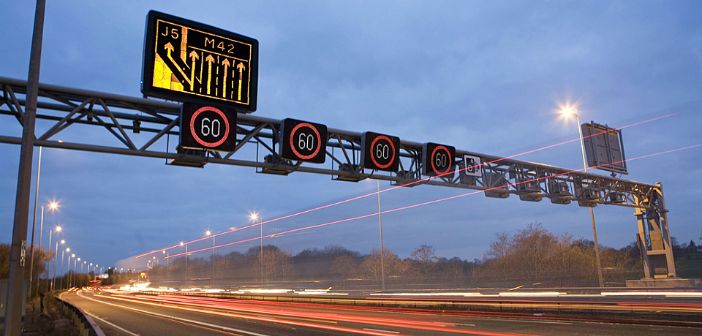The Department for Transport (DfT) is set to delay the rollout of all lane running (ALR) motorways until it has collated a full five years worth of safety data, as it invests further to improve existing smart motorways.
In line with the Transport Committee’s most recent recommendations, the rollout of new ALR smart motorways will be paused enabling the government to assess the data and make an informed decision on next steps.
DfT has welcomed the Transport Committee’s report, which endorsed its focus on further upgrading the safety of existing ALR smart motorways rather than reinstating the hard shoulder.
As concluded by the committee, evidence suggests hard shoulders do not always provide a safe place to stop, and by reducing motorway capacity, they could put more drivers and passengers at risk of death or serious injury if they were to divert onto less safe local roads.
Therefore, the DfT will invest £390m to install more than 150 additional emergency areas so drivers have more places to stop if they get into difficulty. This will represent around a 50% increase in places to stop by 2025.
Transport secretary, Grant Shapps, said: “While our initial data shows that smart motorways are among the safest roads in the UK, it’s crucial that we go further to ensure people feel safer using them.
“Pausing schemes yet to start construction and making multimillion-pound improvements to existing schemes will give drivers confidence and provide the data we need to inform our next steps. I want to thank safety campaigners, including those who have lost loved ones, for rightly striving for higher standards on our roads. I share their concerns.”
While further data is being collected, National Highways will continue work to complete schemes that are currently in construction, which will all open with technology in place to detect stopped vehicles.
Design work will also continue on those schemes already being planned, so they are ready to be constructed depending on the outcome of the pause. No preparatory construction work will take place.
Also, in line with the committee’s recommendations, National Highways will pause the conversion of dynamic hard shoulder motorways – where the hard shoulder is open at busy times – into all lane running motorways while it investigates alternative ways of operating them to make things simpler for drivers.
The government added its response to the Transport Committee builds on its 18-point action plan to improve smart motorway safety, announced in 2020. This included adding emergency areas and upgrading cameras to detect red X offences.





